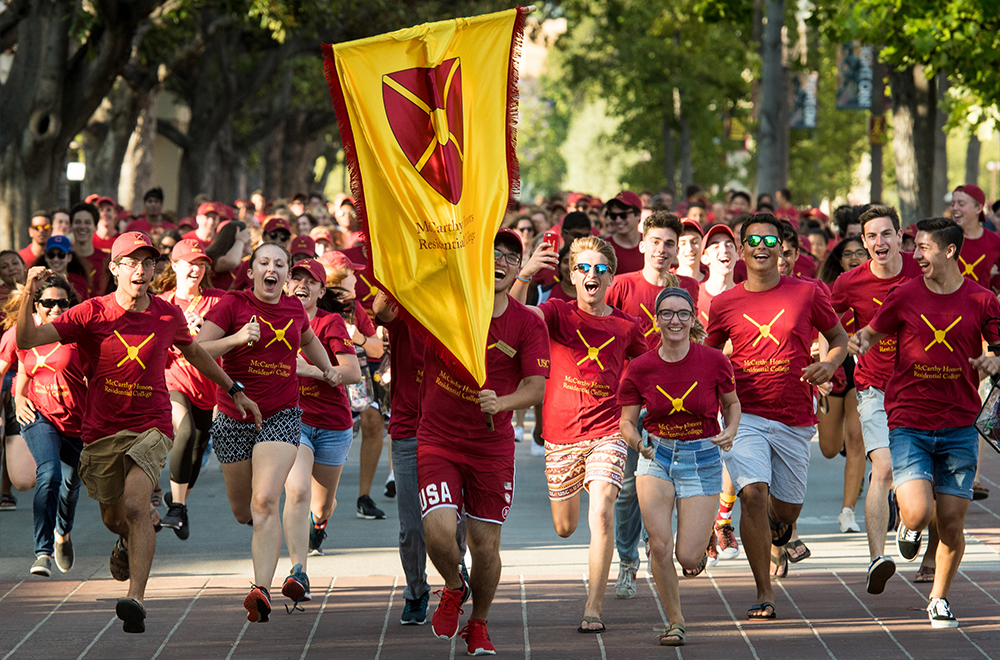
FAQs
USC deeply values the contributions that graduate students make to its research and teaching missions, and we are proud to provide firsthand experiences that serve as excellent preparation for a range of career outcomes. The University remains steadfast in its commitment to support, mentor and prepare graduate students for future success.
Ask a question not answered here.
General FAQs
This is the subject of a proposal that is currently being discussed at the bargaining table. While there is not yet a final agreement on this issue, you should generally assume the following are included in the bargaining unit—
All graduate students enrolled at the University of Southern California (USC) who are employed by USC in teaching-related jobs, including:
- Teaching Assistants and Assistant Lecturers (job codes 032010 and 032014), and/or employed by USC in research-related jobs as follows:
- Research Assistants;
- Those compensated through training grants; and
- Fellows (or those receiving fellowship funding) in one of USC’s STEM disciplines.
This is the subject of a proposal that is currently being discussed at the bargaining table. While there is not yet a final agreement on this issue, you should generally assume the following are included in the bargaining unit—
Those who are excluded from the bargaining unit include all other employees and
- graduate students enrolled at USC who are fellows (or receiving fellowship funding) in one of USC’s Humanities or Social Sciences who do not currently perform research-related services for the University in the Marshall School’s PhD Program in Business Administration Concentration in Management and Organization in the Micro Organizational Behavior track
- students employed as Student Worker (job code 032025), Student Worker, Research (job code 032024), or Student Worker, Supervisor (job code 032026), who do not also have a concurrent position included in the description above
- guards and supervisors as defined by National Labor Relations Act.
A union is an organization that, in exchange for the dues paid by the individuals they represent, serve as the exclusive collective bargaining representative for a group of employees, negotiating with the employer seeking agreement on the terms and conditions of employment.
Following a secret ballot on USC campuses on February 15 and 16, 2023, a majority of eligible graduate students who cast ballots voted in favor of representation by the UAW. The Graduate Student Workers Organizing Committee—United Auto Workers (GSWOC-UAW) was subsequently certified as the exclusive collective bargaining representative of USC graduate student workers on February 27, 2023.
“Collective bargaining” is a process by which a union and an employer negotiate the “terms and conditions of employment,”such as pay and benefits, for all members in the bargaining unit. The union has the exclusive authority to bargain on behalf of all bargaining unit members during this process.
It’s important to remember that the law requires USC to maintain the “status quo” with respect to graduate students’ terms and conditions of employment during bargaining. While both sides have agreed to bargain in good faith, union negotiations can often be long and complex, and the outcomes are uncertain.
As stewards of the university’s resources and the overall excellence of USC Graduate School, we must find a balance between fully addressing the demands of the union, meeting the needs of graduate students, and maintaining, growing, and investing in the future of our PhD programs. We are confident that, through good faith negotiations, we can reach a mutually beneficial agreement that creates a positive professional environment for our graduate students.
We do not know. While both sides have agreed to bargain in good faith and are eager to make progress, contracts can take a considerable amount of time to negotiate depending on the issues at stake and the complexity of the negotiations. At other institutions, agreements have failed to be reached even after years of negotiating.
The University’s practice has been that every USC Ph.D. student receives a Multi-Year Funding Offer that guarantees their funding for four or five years, depending on their discipline. The offer consists of a mix of fellowship support and TA/RA support that varies by program. The letter also guarantees healthcare benefits, including dental insurance, vision coverage, and mental health services. In addition, the Graduate School offers summer stipends, advanced fellowship support, and, in conjunction with Graduate Student Government, additional support for dependent care.
International graduate students receive the same Multi-Year Funding Offer as their domestic peers. No distinction is made between domestic and international students in terms of stipend amounts, or in terms of tuition, fees, or access to USC resources.
Under President Folt, we have also invested more to meet the special needs of international students. This year we have added staff to the Office of International Services (OIS). OIS supports students’ maintaining visa status so they can study and work at USC and post-graduation in the U.S. OIS also answers questions and provides information and support on other concerns international graduate students may face. Other USC programs for international graduate students provide professional development for TAs, writing support for Ph.D. dissertations, and crisis management. USC maintains nine International Offices that can provide support in a student’s home country, including career networking. And USC advocates for legislation that is important to international students through our Washington, D.C., office.
The University works hard to protect the rights and dignity of all students. All forms of harassment, discrimination and bullying are strictly prohibited by USC policy. In fact, USC has proposed establishing peer-led anti-discrimination training as part of its negotiations.
Our obligations to meet high ethical and professional standards are set out in the Integrity and Accountability Code, which outlines the university’s core values of integrity, excellence, well-being, open communication, accountability, and diversity, equity, and inclusion. We maintain strict policies that prohibit bullying, harassment, discrimination, and retaliation. The USC Office of the Ombuds provides a safe and confidential place where students can share USC-related issues. Several alternative channels including https://report.usc.edu, are also provided to report complaints, including anonymous complaints, and to receive support. When complaints are made to USC, they are promptly reviewed and investigated as appropriate. The Office for Equity, Equal Opportunity and Title IX investigates protected status complaints, whereas the Office of Professionalism and Ethics works with units to attempt resolution of non-protected status complaints at the local level.
The union submitted to USC almost 100 discrete “requests for information,” many of which appeared to be copied and pasted from requests submitted to other institutions in prior negotiations, and which also include requests for student information protected by the Family Education and Privacy Act (FERPA). The union does not identify any specific requests for information in its charge, but we expect that it may be alleging that the university’s failure to respond to all of their requests to date is an “unfair labor practice” in violation of the National Labor Relations Act.
We disagree that the university has committed any unfair labor practice and have been working diligently to provide the union with information needed to make and evaluate proposals, including by responding to requests identified as a priority and exchanging information at the table following caucuses. We also believe the 19 tentative agreements reached, and our agreement to increases in areas identified as union priorities, such as support for our international students and students with children, demonstrate our continued commitment to bargaining in good faith to reach agreement.

Bargaining Update - October 18, 2023
USC Proposal Offers Some of the Most Competitive Stipends in the Nation in 15th Negotiation Session
Important Dates
-
00/00/00
Lorem ipsum dolor sit amet, consectetur adipisi cing elit, sed do eiusmod tempor incididunt ut abore et dolore magna
-
00/00/00
Lorem ipsum dolor sit amet, consectetur adipisi cing elit, sed do eiusmod tempor incididunt ut abore et dolore magna
-
00/00/00
Lorem ipsum dolor sit amet, consectetur adipisi cing elit, sed do eiusmod tempor incididunt ut abore et dolore magna
Strike FAQs
GSWOC-UAW, the union representing graduate student workers at USC, scheduled a Strike Authorization Vote for October 24-26, 2023. A strike authorization vote is a vote that authorizes the union’s bargaining team to call a strike if they believe the situation justifies one.
The union sent its membership a link to vote online on the morning of October 24. When two thirds of votes cast are in favor of a strike, then a strike has been authorized. A quorum of voting membership is not required, nor is the union required to share its voting methodology.
The strike is scheduled to begin on November 28.
The union will likely ask that all members of the bargaining unit strike. The National Labor Relations Board certified a bargaining unit that consists of all students with appointments as Teaching Assistants (TA), Research Assistants (RA), and Assistant Lecturers (AL), as well as students on Fellowship in STEM disciplines. Ninety-seven percent of the unit consists of Ph.D. students, although a small number of masters students holding TA or RA positions are also considered to be in the unit.
The exact composition of the bargaining unit remains an open question. The union is proposing that the unit be broader and include all students on fellowship and others whose status was expressly left undecided in the official certification of the bargaining unit by the National Labor Relations Board. They may encourage these students to also strike.
No. The decision to strike or not is an individual one. The union cannot force graduate student workers to go on strike.
Many graduate student workers will have good reasons for choosing not to strike, such as continuing to make progress on their research and experiments, preparing to graduate, finishing work on a grant, helping their students prepare for finals, or because they hold different views.
Just as faculty may not retaliate against graduate student workers who choose to strike, graduate student workers who choose to continue working during a strike should be welcome to do so without fear of negative repercussions from faculty, staff, or fellow students. Strike or no strike, every student member of the USC community is expected to conduct themselves according to the principles and policies laid out in the Student Handbook (https://policy.usc.edu/studenthandbook/).
Yes, International Students are able to strike if they so choose. Striking will not impact visa status. International Students with concerns about the strike are encouraged to reach out to the Graduate School and/or the Office of International Services.
The university is continuing to bargain in good faith. Given the progress made at the bargaining table so far, the generous proposals the university has made, and the fact that USC graduate student workers already receive one of the most competitive funding packages in the nation, we believe we should be able to reach a fair contract agreement via the bargaining process. As such, a strike is entirely unwarranted.
Since bargaining began in April, we have reached 24 Tentative Agreements (articles to be included in the contract) and responded to all of the union’s demands—including proposing an economic package that sends a clear signal that USC appreciates the contributions of its graduate students and will work cooperatively with union negotiators to provide further enhancements to the competitive funding packages it already provides. We will continue to meet regularly and engage in honest dialogue, with a view to reaching a fair and equitable contract as soon as possible.
We do not know. The university is working hard to bargain a fair contract, including guaranteed annual raises to all stipends, a fund for dependent healthcare, a fund for childcare, the remission of all Mandatory University Fees and proposing peer-led anti-discrimination training.
Nevertheless, if the union continues to refuse to agree to a contract that guarantees one of the most competitive packages in the country, a strike could drag on into the spring semester or beyond. Faculty should be prepared for this eventuality and adapt their syllabi, assessments, and research plans accordingly.
In keeping with NLRB guidelines, it is important that faculty who oversee graduate student workers do not interfere with, let alone coerce or restrain, union activities. Please avoid initiating any discussion of a strike with graduate student workers. Don’t ask students what they think about the union, what other students think, who the supporters of the union are, or any other questions about the union’s internal affairs. If a student volunteers information, you may listen, but do not ask follow-up questions.
Yes. Faculty members are free to continue to discuss anything pertaining to academics, research, programs of study, classes and coursework, and a student’s academic progress during a strike.
Union members have already approached faculty members asking them to sign letters of support for union demands or to otherwise signal their support for graduate student workers. While we respect that faculty members will have a range of views on this issue, faculty are considered managers and, with respect to graduate student workers, supervisors who are not covered under the National Labor Relations Act.
USC Faculty are prohibited from coercing or restraining students as to their participation in union activities. We caution that signing a letter of support could create the impression that students who do not support the union will suffer adverse consequences from the faculty member who signs.
Department and program chairs should be especially mindful that they are representatives of the management of the university who, under the law, are prohibited from negotiating directly with students or their representatives on union issues. To avoid creating an impression that this has taken place, we request that you do not sign whatever you are being requested to sign. You are also encouraged to bring any concerns raised by the students to your dean, who will bring them to USC’s bargaining team.
Graduate student workers are permitted to picket or demonstrate in open-air spaces on campus. Graduate student workers are not permitted to picket or demonstrate within USC buildings, and neither are third party individuals (such as non-USC union representatives or supporters) permitted in USC buildings without appropriate authorization. Posting flyers and other literature in or on USC buildings is not permitted. If you have questions or issues arise, please contact the Graduate School.
USC Faculty are considered managers (and, with respect to graduate student workers, supervisors) and are not covered by the National Labor Relations Act. A strike does not change a faculty member’s obligation to perform their faculty duties, including the submission of grades or conducting class. Canceling class or failing to submit grades would constitute “neglect of duty”.
Graduate student workers are first and foremost students of USC. The fact of a strike does not absolve a student from continued academic performance. As such, striking students are expected to maintain academic progress towards their degrees. This includes coming to class, completing academic assignments, sitting for exams, continuing research towards their dissertation, and meeting the relevant academic milestones laid out in their program’s handbook.
No. Graduate student workers will not be paid if they elect to strike, as they will not be performing the duties connected to their stipend. Additionally, if federal grant funding is involved, and graduate student workers do not fulfill their project responsibilities or meet the regular effort that would be reported, then the duties not performed cannot be charged to sponsored funds.
Strike FAQs – Teaching Assistants
TAs will not be required to inform you if they are going on strike. Once a strike has been announced, you should assume that TAs will not be attending to their TA responsibilities.
You may not legally ask them if they plan to strike. However, ahead of a strike (and as soon as possible) you should ensure that TAs associated with your class are caught up with their assigned tasks. You may not ask graduate student workers to work over their allotted time, but you can ask them to ensure that grades and other important tasks are up to date.
To prepare for the possibility that the union will strike over Finals, it is important to prioritize continuity of education for impacted students. Effective immediately, we recommend faculty:
- Identify in advance any course elements that might be postponed, abbreviated, or omitted in the event of reduced learning support;
- Ensure that you have access to all course materials, including all TA/AL lesson plans, grades, graded materials and submitted work that is yet to be graded;
- Ensure that you have access to Blackboard, or any other Learning Management System (LMS);
- Ensure that students retain copies of all their submitted work;
- Consider modified/alternative exam and assessment formats, such as multiple-choice exams;
- Consider leveraging technology to minimize grading effort, for example Scantron, Gradescope, or the automated grading tools available in the LMS;
- Be flexible with deadlines.
If, as we anticipate, the union intends to maximize disruption by striking over finals, you should immediately reconsider the format of your final paper and/or exam to account for the withdrawal of TA support. For example:
- Consider using automated grading such as Scantron, Gradescope, or automated grading systems available in the LMS;
- Consider replacing a final exam with individual or group presentations;
- Dispense with a final exam and calculate the final grade based on prior work submitted for the course, such as midterms and other assessments. (Please note that if you choose this route, you should give any student who wants to take the opportunity to improve their final grade the option to submit an additional piece of graded work).
The Center for Excellence in Teaching and ITS Blackboard are available for individual and group consultations. If you use an LMS other than Blackboard, you should contact your school’s instructional design support team.
Whatever you decide, please communicate any changes to the syllabus to the students enrolled in your class as soon as possible, being sure to explain the impact of your revised assessments.
Yes. The university can hire temporary workers to cover the staffing gap created by a strike. Please contact your school’s faculty affairs office or HR manager to explore your options.
Blackboard and other LMS are the property of the university. Instructors of Record have full privileges and permissions in Blackboard and may also toggle TA permissions on or off in the course, should the need arise. TAs have access to almost all of the same privileges that instructors have with a few exceptions. This Blackboard help page contains specifics on the permissions. Each school’s course scheduler also has access to assign privileges and may be a useful contact.
In some instances, a graduate student worker is the Instructor of Record for a course with full instructor privileges. Where this is the case, it may be appropriate for program faculty to take on a Domain Admin role, which grants Instructor privileges across all courses within a specific program or course prefix (e.g., all WRIT courses). The USC LMS team are able to grant Domain Admin permissions with the following documentation:
- a letter from the school dean requesting domain admin access for a user across a specific program/course prefix in Blackboard;
- the user completes domain admin training with USC ITS (the training is approximately 30 minutes in length, and then ITS will need a some time to configure backend access);
- confirmation that the user has taken FERPA training.
Requests for Domain Admin roles should be emailed to blackboard@usc.edu.
No. You may not assign additional non-compensated work to your non-striking TAs. However, domestic (not international) TAs are permitted to assume a paid overload of up to 5 additional hours a week with approval from the Graduate School. Without such approval, TAs should continue to do only the amount and kinds of work they have been doing throughout the semester.
Assuming there is a good reason, such as bringing together a class that can no longer be broken up into smaller discussion sections because of absent TAs, then yes, you may. Tools that may assist with online or asynchronous teaching include:
- Blackboard or other Learning Management System
- Labster for online labs
The Center for Excellence in Teaching and ITS Blackboard are available for individual and group consultations. If you use an LMS other than Blackboard, you should contact your school’s instructional design support team.
Please do not cancel class. If your discussion or lab sections cannot be covered, consider offering whatever additional support is reasonable. This might include asynchronous online activities, extended office hours, or meeting with large groups of students via Zoom.
Please communicate with your students immediately if you anticipate any disruption to your class. Students will have understandable concerns about receiving their final grades on time and the status of their assessments, so please be sure to address your plans in this regard. If a TA goes on strike and stops hosting office hours and replying to messages, provide your students with an alternate point of contact. You are free to explain the factual background to the strike and share this website with them.
We will take all appropriate measures to ensure students are not negatively impacted by a strike, and grades are submitted by the grading deadline, which is December 19 for most courses. If a grade is not submitted, the student’s grades for the course will be NS (Not Submitted). The NS will remain in place until the professor submits a final grade for each student in the USC Grading and Roster System.
Each student’s situation may be different and departments supporting these students are evaluating approaches on a case-by-case basis. However, here are some student populations that may be particularly impacted by a delay in receiving their final grade:
- students on financial aid,
- students intending to graduate in fall 2023,
- students applying to graduate programs that require grades from the fall 2023 semester,
- veterans,
- international students on visas,
- student-athletes,
- students intending to declare a major,
- students in danger of dismissal,
- visiting students who need final grades to return to their home institutions and progress with their degree plan,
- students needing to proceed with sequential or prerequisite courses; need to know if they are clear to proceed with spring enrollment or must repeat a fall class,
- students whose tuition is paid by their employer upon demonstration of successful completion of the course.
The university is discussing contingency plans to prevent any adverse impact to students because of late-submitted grades should it be unavoidable.
Some of the resources available include:
CET individual and group consultations
ITS Blackboard individual and group consultations
The CET will also be hosting workshops around these themes. The schedule will be posted on the CET Event page.
Strike FAQs – Research Assistants
You may not legally ask them if they plan to strike. However, ahead of a strike (and as soon as possible) you can ask RAs to prepare a detailed report on the status of their research and to confirm they are caught up with their assigned tasks. You may not ask graduate student workers to work over their allotted time, but you can ask them to ensure that important tasks are up to date.
Where research is typically conducted by graduate student researchers, make alternate staffing plans for caring for animals, plants and other sensitive research assets. In addition:
- Continue to follow all safety procedures.
- Postpone experiments if requirements for the minimum number of individuals cannot be met.
- Safeguard critical research assets.
- Ensure critical data assets are backed up and accessible.
- Consider preserving critical cell lines and other assets.
- Consider postponing or offering a hybrid option for meetings, events and symposia.
- Consider postponing visits from outside guests.
- Deliveries of research supplies and materials may be delayed. Order ahead, delay deliveries or plan in case of delays.
- Expect that some campus user facilities may be short-staffed during a strike.
Unfortunately, there is no straightforward answer to this, as so much depends on the individual project and nature of the grant. In essence, a striking RA will look to withhold work equivalent to the terms of their appointment — i.e., a 50% RA will withhold 20 hours of work. Expect, then, an RA to be in the lab (or relevant venue) roughly 20 hours less per week.
While faculty may not ask RAs about their intentions regarding the strike, they can (and should!) continue to have conversations about their academic progress and what tasks must be prioritized to maintain academic progress. When thinking about these tasks, PIs should be clear about what is necessary to academic requirements. Keep the focus on academic progress. Communicate with students early and often.
Faculty should not ask striking RAs to perform tasks that are clearly related to their funded work, such as assisting in preparing reports to a funding agency or preparing documents or presentations for (or attendance at) funders’ grantee meetings.
You may not assign additional work to non-striking RAs without additional compensation. domestic (not international) students are able to petition the Graduate School to take on up to an additional 5 hours per week of paid work. Without these approvals, RAs should continue to do only the amount and kinds of work they have been doing throughout the semester.
Avoid asking directly about the strike. However, you may ask Research Assistants if they performed their duties in relation to the grant.
Only certify for the periods of which the RAs performed work on a sponsored project.
Contract Issues
Lorem ipsum
Lorem ipsum dolor sit amet, consectetur adipiscing elit. Ut elit tellus,
Lorem ipsum
Lorem ipsum dolor sit amet, consectetur adipiscing elit. Ut elit tellus,
Lorem ipsum
Lorem ipsum dolor sit amet, consectetur adipiscing elit. Ut elit tellus,
Lorem ipsum
Lorem ipsum dolor sit amet, consectetur adipiscing elit. Ut elit tellus,




